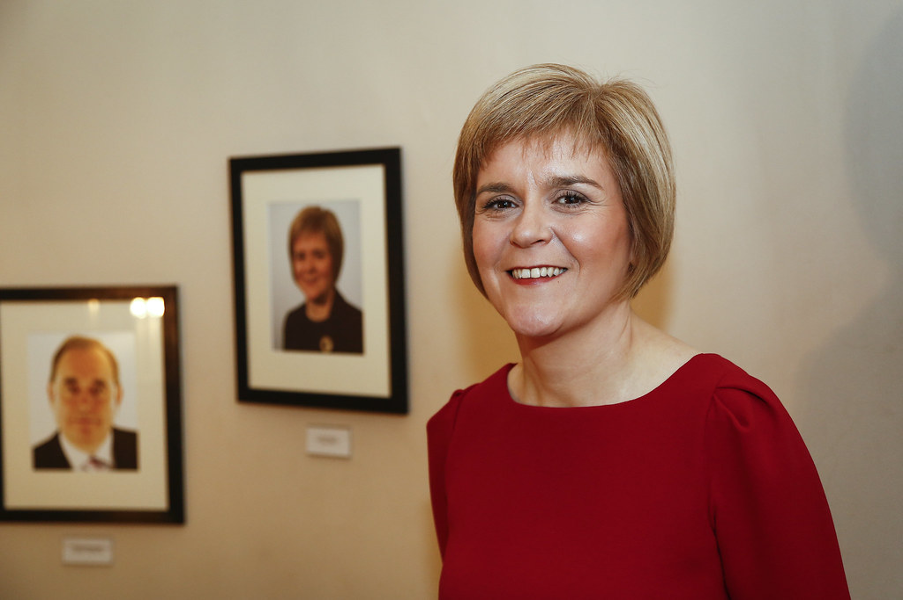
More so than other leaders of the devolved nations in the United Kingdom, Nicola Sturgeon has become a recognisable and influential figure within British politics over her last seven years as First Minister of Scotland. Supposedly seen as the most competent and successful leader within Britain during the pandemic (with a 10% approval rating compared to Keir Starmer with 9% and Boris Johnson with -8%) it would be fair to say that Sturgeon has been a major political player, pushing the Scottish agenda into the consciousness of the wider British public and becoming, for many, emblematic of the fight for Scottish independence. It seemed that if Scotland were ever to be granted the opportunity for another independence referendum, it would be Sturgeon steering the ship. However, due to her announcement last week that she is stepping down as First Minister and SNP party leader, it appears that Scottish politics- and by extension the independence cause- will be undergoing a transformation.
Many have been left confused by her decision to step back now, with significant work still left to be done in order to obtain another independence referendum. Sturgeon states that she feels now is the right time, as Scotland is in need of a new leader to reach out to different types of voters and unite the independence effort. However, some are sceptical of Sturgeon’s words, with many feeling that the mounting pressure that she was facing over gender reforms, trans issues and referendum efforts were more influential in her decision to resign than she admitted. Amongst this chatter over what motivated Sturgeon’s resignation is real concern over the future of the Scottish independence cause; what it looks like and who will lead it. Will Scotland succeed in what Sturgeon and her allies have spent years campaigning for? Or is the dream dead now that its leading woman has stepped away from the limelight?
At first look, the state of the Scottish independence movement in the post-Sturgeon era looks fairly bleak. Already, many fear the impact that Sturgeon’s loss may have: an Ipsos Mori poll highlights that around 54% of the Scottish public believe that Nicola Sturgeon’s resignation will have a negative impact on the independence cause, with over 51% of SNP voters during the 2019 election believing the same. Sturgeon has not even officially left office yet, but the impact is seemingly already being felt. In such an issue as the topic of independence, a strong ideological commitment to holding another referendum is extremely important, and more so within Scotland where the balance of Yes/No support is continuously changing. In order to convince other groups to back the SNP and its agenda, it is crucial that the party’s own support base believe in what they are fighting for. However, even at the very beginning of this new era in Holyrood politics, it seems that even SNP voters are doubting the viability of the dream. If Scotland’s own independence party loses its stronghold, it really will be almost impossible for any progress on the referendum issue to be made, especially when Westminster has to be convinced to allow them to hold another vote.
Despite this, amongst further investigation it would be fair to say that a Sturgeon-led Holyrood government has not been without its faults. Although it must be acknowledged that convincing the British government to allow Scotland to hold another referendum is an extremely difficult task, Sturgeon has been unable to achieve this during her almost nine years in power (a period in which she dedicated nearly all of her time to the independence issue). Also, despite support for the SNP and Scottish independence marginally growing under her leadership, in the last few months this has nose-dived due to controversies that Sturgeon was embroiled in. The recent issue over transgender prisoners and gender reform has been haunting her, which was worsened by two cases about transgender rapists being placed in women’s prisons coming into the public consciousness. Sturgeon was unable to clean up this mess quickly and rectify her blunder, which left her open to criticism from both the public and figures within Westminster too, succeeding only in undermining her judgement and position. Maybe in light of this- and due to the fact that Sturgeon did not succeed in achieving a significant surge in support for the independence cause- efforts to obtain another referendum may benefit from her resignation. It is possible that a new face for the independence campaign may help it to rebrand, and move away from the controversy that coloured Sturgeon’s last few months in power.
Overall, it is difficult to judge if the future of Scottish independence is in danger. For nearly a decade Nicola Sturgeon has become almost synonymous with the fight for another referendum, and succeeded in bringing Scottish affairs into public discourse within the UK as a whole. Therefore, it is hard to picture what a post-Sturgeon independent Scotland looks like, as many would have expected that if the country were to ever achieve independence, it would be led by Nicola Sturgeon. However, given her rapidly declining popularity and, as a consequence, the nose-dive in SNP support, maybe a new face is needed to save the future of the independence effort. If the party chooses someone who is able to animate voters who up until now have been indifferent or against independence, the dream of many Scots to have another chance to change their fate may be possible. It may have been impossible for Sturgeon to emerge from the cloud of controversy that imbued her, and thus her resigning may have been her saving the Scottish independence effort from an untimely end.



Average Rating